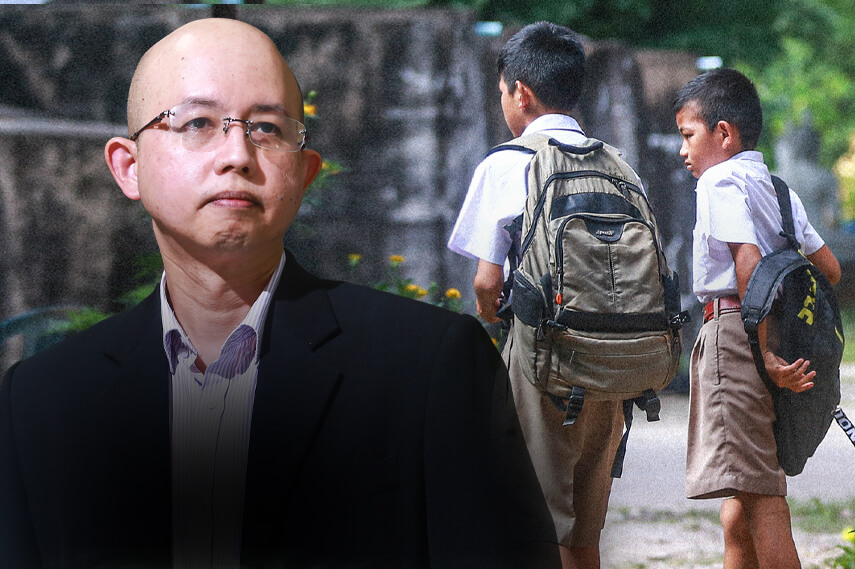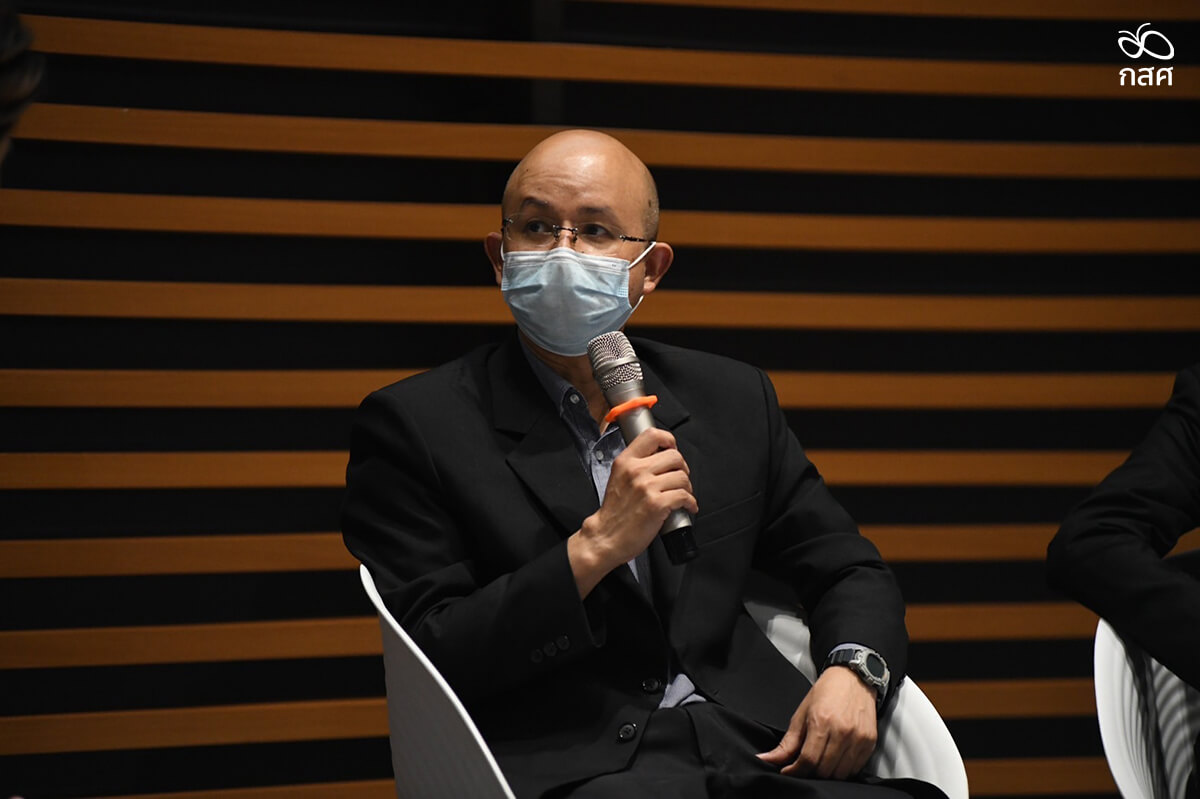
“Because COVID-19 has caused various problems for Thai children. Thus, EEF has joined in the discussion of these problems for a solution to help Thai children overcome the crisis.”
On October 12, 2022, Thai PBS in collaboration with the Equitable Education Fund (EEF) and network partners from many agencies organized a discussion on “Children from COVID-19, Children out of the border” at Thai PBS. During the discussion, there was a presentation of information and suggestions for solutions from Dr. Phumsarun Thongliamnak, Director of the Research Institute for Equity Education Fund (EEF) Thailand.
“The situation of children dropping out of the educational system in Thailand has been known for some periods of time, with quite a high number of children. Only after COVID-19, the number of those children dropping out of the education system has been increasing and this problem becomes common in many sectors, including children in urban communities and rural areas, in both big and small cities. All have the same problems which are related to the economic situation of each household, ” said Dr. Phumsarun.

“Overall, the problem of children dropping out of the education system over the past two years has been quite serious. However, as the epidemic situation gradually improves, we are working with various sectors of education to help children return to school. If some children are not ready to go back to school, such as those with a little older age, it will be a matter of promoting professional skills, vocational training, etc.”
Dr. Phumsarun added that the number of children dropping out of the educational system is still quite severe. The figures from the survey showed that the household income of the poor and especially poor children during the COVID situation has decreased from 1,289 baht per month in semester 2/2018 to 1,077 baht per month in semester 1/2020 and 1,094 baht per month in semester 1/2021, with the increasing number of poor to especially poor children in the past 2-3 years by almost 300,000 children.
“The figures of the Ministry of Education from the project to bring children to return to school showed a survey of children dropping out of the education system during the year 2021 before the start of semester 1 with quite a high number. However, we are glad that government agencies or state agencies recognize that those figures are serious. Even at t first glance, the figures are large and it does not look good. In fact, the government accepts this and tries to cooperate in getting teachers or communities to help bring children who drop out of the educational system back to schools and classrooms. Therefore, the figures are getting better. As of today, the figures are about ten thousand children dropping out of the system.”

Dr. Phumsarun Thongliamnak, Director of the Research Institute for Equity Education Fund (EEF)
Dr. Phumsarun said that during the COVID-19 situation, EEF has explored what factors made parents worried about the situation. It was found that the issues of major factors affecting each household are economic. Parents have to take time off from work to take care of their children or their income is decreased. They have to bear their burdens within the family due to lower income. This is considered the most important factor. During the COVID pandemic, there were many cases where parents have to force their children to drop out of school because of no money to pay tuition fees, especially private schools. There was quite a large sector of the population affected by so-called acute poverty.
“At first, they were able to send their children to private schools. When there was an economic crisis in the household, they don’t have money to pay tuition fees. Sometimes, schools don’t issue certificates. Thus, children have unresolved problems. We come across such cases quite often and discussed them with OBEC. The OBEC has a policy that if children come from private schools without a certificate for graduation, they can be allowed to enter into schools under the OBEC. This is considered a temporary relief. In general, the situation in which parents suddenly lose their income and have no money to buy school supplies or pay for tuition fees. This is a major problem that causes children to drop out or be at risk for dropping out of the educational system.”
Dr. Phumsarun said that there are many reasons for helping children from dropping or at risk of dropping out of the education system. In the past, there have been many aspects, such as the establishment of an emergency center to help children in educational crises, e.g., those whose families lack income. So, they have to leave private schools suddenly. EEF has thus coordinated with OBEC and the destination schools for children.

“In case of an epidemic, we have coordinated various medical treatments. In some areas, we visit children who dropped out of school to see how we can help them. Besides the visit and follow-up of those children by teachers, we sometimes work with local communities to promote vocational skills for children who are teenagers or older.”
Dr. Phumsarun said that there are many factors that we have not yet considered, such as schools, parents, and communities. If parents realize the importance of education, they will communicate this to their children as well.
“We once had research where we visited children who were very poor but did well in school. It was found that a common factor was parental support. Although children were from poor families with little education and they received support from their families with correct educational attitudes, including a good atmosphere at schools for children to study, all of these can be used as a basis to provide assistance to children. Thus, we would like to pass this on as an issue to the educational managers, as well as teachers, schools, parents, and communities. Apart from the economic, this should be another factor to assist children not to drop out of the educational system”.

